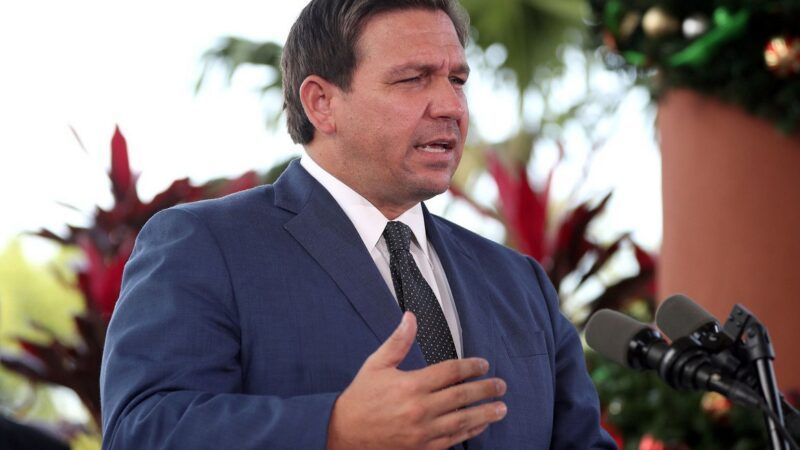Don't Ban Critical Race Theory in Education. Embrace School Choice Instead.
It's wrong for politicians to suppress important debates in schools. Instead let families have more control of their kids' educations.

Conservatives in Florida, Idaho, and the nation's capitol are attempting to block public schools from teaching Critical Race Theory, an ideology that holds that racism is historically fundamental to how America's political, legal, and cultural institutions are structured.
It's an authoritarian proposal that would cut off classroom debate about hot-button political issues. Rather than rejecting the idea of forcing students to learn controversial concepts as though they're facts, it just picks a different side of the controversy and pushes that one instead.
The proposals also tend to be terribly written. Here's what Florida's State Board of Education passed unanimously Thursday:
Instruction on the required topics must be factual and objective, and may not suppress or distort significant historical events, such as the Holocaust, slavery, the Civil War and Reconstruction, the civil rights movement and the contributions of women, African American and Hispanic people to our country, as already provided in Section 1003.42(2), F.S. Examples of theories that distort historical events and are inconsistent with State Board approved standards include the denial or minimization of the Holocaust, and the teaching of Critical Race Theory, meaning the theory that racism is not merely the product of prejudice, but that racism is embedded in American society and its legal systems in order to uphold the supremacy of white persons. Instruction may not utilize material from the 1619 Project and may not define American history as something other than the creation of a new nation based largely on universal principles stated in the Declaration of Independence. Instruction must include the U.S. Constitution, the Bill of Rights and subsequent amendments.
The amendment also forbids educators from sharing their personal views at all during class discussions.
Now, a lot of honestly misguided ideas have come out of Critical Race Theory—its exponents, for example, have pushed the idea that the First Amendment should not protect hate speech. But the notion that embedded racism has played a major role in America's institutional history should not in itself be controversial. Florida's new rule defines Critical Race Theory as claiming "racism is embedded in American society and its legal systems in order to uphold the supremacy of white persons." Would this cover the idea that America's past is full of obvious examples of institutionally embedded racism? A teacher might argue that the language doesn't cover that, but it's close enough that it could have a chilling effect. The results would be untenably absurd: Students would learn that slavery was a result of simple prejudice against black people, not an entrenched political and economic system.
This amendment is, in itself, a lesson about Critical Race Theory. Those with the most political power in Florida are deciding what can and cannot be taught about race relations. While Florida has a significant black and Latino population, it is still predominantly white. The dominant power structure in Florida is telling educators how they're allowed to characterize racism within America's power structures.
The parents who are upset at the teaching of Critical Race Theory at school—or, sometimes, upset about "anti-racist" instruction that doesn't have much to do with Critical Race Theory but gets lumped together with it anyway—are often reacting to genuinely bad practices. When every aspect of culture gets whittled down to a race-driven conflict, that either turns people defensive or causes them to tune out entirely. But rather than trying to address such concerns in a reasonable manner, Republican Florida Gov. Ron DeSantis and the state's Department of Education are throwing kerosene on the fire for political gain.
Similarly: It's inappropriate to ban the teaching of The New York Times' controversial and flawed 1619 Project in public schools. You can't talk about the flaws otherwise! It's also equally inappropriate to mandate the teaching of the 1619 Project as though it's an accurate representation of history; in fact, historians have questioned some of its claims.
Better to let families decide for themselves. Florida has a pretty good record of supporting school choice: The state currently has 687 charter schools serving more than 340,000 students. And school choice is the ideal way to address these concerns—certainly better than either a mandate or a ban. Letting families choose which schools their children attend means letting them decide what curricula those children will encounter, without either side of this culture war getting a veto over that choice.


Show Comments (303)